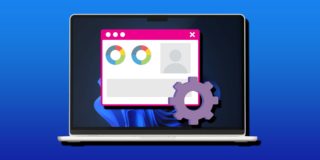Reality Check: Windows 8 Outpaces OS X Mavericks by More Than 5 to 1

My opinion of Apple CEO Tim Cook has grown significantly in the years since he assumed control of one of the world’s most important companies. After stepping up to the challenge during a difficult and trying time, he has kept Apple pointed in the right direction, despite a few mistakes along the way. That trend continued Monday morning when, with the help of an excellent performance from Apple SVP Craig Federighi, Mr. Cook’s company delivered a historic WWDC keynote address, the full implications of which will shape Apple and the industry for years to come.
But in the midst of all of this progress and success, Mr. Cook continues to baffle me by occasionally wasting time on meaningless and often misleading statistics and figures, exercises that are often petty jabs at competitor Microsoft. I’ve talked about this practice in the past, and I continue to hope with each passing Apple milestone that he’ll finally rise above this absurdity. Alas, Monday’s WWDC keynote did not see my hope fulfilled.
Early into the keynote, Mr. Cook lauded the adoption rate of OS X Mavericks. Launched just last October, the operating system is, according to Apple, running on 51 percent of all Macs currently in use. It’s a fantastic adoption rate for a desktop operating system, and it’s something that Mr. Cook and his employees should be truly proud of.

But instead of leaving it at that, Mr. Cook felt the need to take a jab at “frenemy” Microsoft and its notorious Windows 8 operating system. As Mr. Cook explained with a smirk, Windows 8 has an install base of only 14 percent of all Windows-based PCs currently in use, despite being on the market a full year longer than Mavericks. How sad for poor Microsoft, Mr. Cook implied to the laughter of the crowd.
Like similar claims that Mr. Cook has made in recent months, however, the truth of the comparison is meaningless, and just a few minutes of research reveals a statistic that Apple executives would never acknowledge: In terms of raw usage, Windows 8 blows OS X out of the water.
Right before making the comparison to Windows, Mr. Cook provided some interesting data on the state of Mac usage. With 40 million downloads of OS X Mavericks, and a Mavericks install base of 51 percent, the current overall Mac install base works out to around 78.5 million. Again, if Mr. Cook had simply stopped here, there’d be no problem, but he continued on with a comparison to Windows.
 Mr. Cook was roughly correct in his assessment of the state of Windows 8 adoption. Based on NetMarketShare data, as of May 2014, Windows 8 can be found on about 14 percent of all PCs currently running Windows. But with an overall market share of about 1.5 billion, Windows PCs represent nearly 91 percent of all computers in use worldwide. In simple terms, that means that Windows 8, widely considered a “failure” by critics and competitors, is in use on about 210 million PCs worldwide. That’s more than 5 times the install base of Mavericks, and more than 2.5 times the install base of every Mac currently in use.
Mr. Cook was roughly correct in his assessment of the state of Windows 8 adoption. Based on NetMarketShare data, as of May 2014, Windows 8 can be found on about 14 percent of all PCs currently running Windows. But with an overall market share of about 1.5 billion, Windows PCs represent nearly 91 percent of all computers in use worldwide. In simple terms, that means that Windows 8, widely considered a “failure” by critics and competitors, is in use on about 210 million PCs worldwide. That’s more than 5 times the install base of Mavericks, and more than 2.5 times the install base of every Mac currently in use.
It’s also worth noting that Windows maintains this lead even though it doesn’t share OS X Mavericks’ “free” price point. Further, the NetMarketShare data monitors operating system share for computers that are actually in use and connected to the Internet. Apple, meanwhile, measured Mavericks in terms of “copies installed,” which may be a statistic larger than the number of Macs with Mavericks actually in use (here at TekRevue, for example, we’ve downloaded and installed Mavericks at least 20 times since its public launch as we built and re-built test systems, performed troubleshooting, and set up virtual machines, but only have four Macs actively running the operating system). It’s not clear how Apple is exactly measuring this, but all of these caveats are to say that Windows 8 has a comparatively huge install base despite several factors that aren’t in its favor.
Apple and Tim Cook don’t need to keep venturing into the realm of garbage statistics
Now, I can feel the blood boiling in some of you as you read this. Who the $#!&@ is this guy? Doesn’t he realize that Tim was just trying to show developers how successful the OS X platform is with upgrade adoption? What a loser! Yeah, yeah, I get it. But here’s the thing: in terms of a truly independent developer who is debating between creating apps for OS X or Windows, Mr. Cook is trying to mislead them.
First, it’s a safe bet that any developer who paid to attend WWDC is already committed to Apple’s platforms, so in that context Mr. Cook’s comments might be excused as simply a fun jab at the big evil Microsoft for the benefit of Apple’s biggest fans. But it’s absurd to argue that Mr. Cook isn’t fully aware that the entire developed world is paying attention to WWDC in some shape or form, and so we know that many new and existing developers pay close attention to the conference to help them decide the future of their apps and companies.
Second, it’s clear that Mr. Cook’s overt purpose in the comparison was to tell these potential developers, “hey, come develop for OS X because a greater percentage of our users are running the most current versions of our software.” And, in a beautiful illustration of the phrase “Lies, Damned Lies, and Statistics,” the two pie charts present a startling contrast that would make less careful observers think that OS X was eating Windows’ lunch.
But a percentage is meaningless without context. I could fork Linux into the TekRevue OS, install it on five computers, and claim that “100 percent of TekRevue OS users are running the latest version!” Despite that impressive statistic, any developer would be foolish to waste the resources to craft software for such a platform.
And that’s not to say that OS X is bad, or that Windows is somehow better. Windows 8 does have some problems (although they’ve been blown way out of proportion by many in the media), and OS X is the most commonly used operating system here at TekRevue, but the truth behind Tim Cook’s charts is that Windows 8, the so-called “failure,” is in use by more people around the world than all versions of OS X combined. And if you’re a developer deciding between Windows and OS X, your audience will be significantly larger if you join Redmond’s team.
There are, of course, many more factors that developers consider aside from total usage share, and OS X provides tons of exclusive APIs, tools, and technologies that aren’t available to developers on any other platform. So why not just focus on the good? Go ahead and laud Mavericks and iOS, highlight the amazing tools available to Apple developers, share all manner of sappy marketing that shows how Apple devices and software are changing the world.
But stop venturing into the realm of garbage statistics. It’s beneath the company and its executives, and it casts a distasteful and completely unnecessary shadow over an otherwise monumental series of announcements.

















17 thoughts on “Reality Check: Windows 8 Outpaces OS X Mavericks by More Than 5 to 1”
“You keep using that word. I do not think it means what you think it means.”
Curious do you drink a lot?
To your primary question, however, I’ll be more direct this time. Your use of the word “fact” to describe something that is objectively opinion is interesting, although given your attempt at an ad hominem attack in your follow-up, perhaps not surprising in hindsight.
You have to look at it in proportion.
No because, first, that would be difficult (if not impossible to calculate) and, second, because the numbers Tim Cook used didn’t take that factor into account. Tim’s numbers included all worldwide Macs and all worldwide PCs with only one caveat: we don’t know how Apple calculated the Mac figure, but the PC figure is based upon computers that actively use the Internet (that’s how it’s measured by research firms). So there is some degree of variation in the numbers due to PCs out there that are too old/broken/whatever to get online.
The way I see it myself as someone who has forgotten more about technology then most bloggers know I can say this.
Yes I agree to a point that Tim was putting the numbers across in a context that was perhaps not as it should have been. Yes also we do know that the numbers of MS pc’s using Windows 8 can not be completely accurate because many do not use the Internet etc. However what you miss and still miss is that firstly because Mavericks uses the internet to be downloaded on Macs that did not come shipped with it it is easy for Tim to be able to accurately see how many Macs upgrade to Mavericks, as you said you did not see how he came up with how many Macs upgraded to Mavericks. Next He is doing a product announcement and is hardly likely to put it across in it’s politically correct context to attempt to please you. If he had you and others like you would probably complain for some other reason. he though did not say how he was trying to put the numbers
across. In other words he simply was showing that the adoption rate of machines now running Mavericks was higher than that of windows 8. Even though that there are more machines running Windows 8 that is not important or did no one ever tell you that end numbers are not as important as you think. Yes there are over 200 million machines using Windows 8 though that does not mean it is successful if there are many millions more that do not. There are more machines running windows 8 because MS did not make their own hardware, Apple do so it is easier and cheaper for people to use Windows than OS X. Also you fail to take into account pirated copies of Windows that are activated easily. That does not mean those users liked windows 8 simply they could do it for free. Same as Mavericks.
So i think that yes the numbers are not as should be portrayed but hey even your blessed MS does the same and Google and Samsung and every other firm out there.
they put numbers across in ways they perhaps should not. Then we do not live in a politically correct world do we?
so based on your logic if there were as many macs as windows machines then there would be a higher amount of machines using Mavericks based on that 51% adoption rate.
Though why do I feel you will now try to do a double back intellectual somersault to argue with me. You will fail though because I always win
http://www.infoworld.com/t/microsoft-windows/windows-81-keeps-climbing-its-own-rate-231901?source=footer
Net-net companies do this all the time..it’s marketing…it’s positioning…and it’s not just Apple. As to if you think a given comparison is fair or not is a fair point but unfair to treat it like a Tim Cook or Apple issue. It’s an industry issue.
Well, first, I wouldn’t call my reaction "indignation" so much as "disappointment." But regardless, I don’t think your example of Microsoft’s comparison of the SP3 with the MBA applies here. It’s true that the SP3 is at heart a tablet, and the MBA at heart a lightweight laptop (I guess the PC equivalent would be Ultrabook), but Microsoft’s marketing takes that into account. The SP3 runs a full-featured desktop OS, has an optional keyboard and trackpad, expansion ports, etc. And if you look at Microsoft’s comparison of the two products, they compare the weight with the SP3’s keyboard cover included against the 13-inch model. At worst, you could argue they neglected the 11-inch model, but even in that case the two devices are essentially equal in weight (2.4 pounds for the SP3, 2.38 pounds for the 11-inch MBA).
In that sense, if a customer wanted a lightweight choice for running a desktop OS, and they were trying to choose between OS X and Windows, they would naturally compare Apple’s MBA with Microsoft’s Surface Pro 3. Roughly similar screen sizes (11 and 13 inch for the MBA, 12 inch for the SP3), similar CPU and storage options, similar expansion ports, built-in cameras, and so on. So I don’t understand why it’s a completely unfair comparison.
Finally, nowhere in this article did I state or imply that only Tim Cook is doing this. Of course other companies engage in unfair marketing all the time. The reason for this piece specifically is that I’ve noticed Cook do it repeatedly (his "cumulative iPhone sales" chart last year was a joke) and the timing of his announcements on Monday made it temporally relevant.
Also, did you ever think that maybe I expect more from Tim? As I said, I’ve admired his leadership of this company since he took over. Despite the serious challenges faced by other new executives these days (GM’s Mary Barra, for example), I think Tim will be seen as history as being particularly deft considering the shoes he had to fill and the monumental expectations placed upon him. So, as I said, I think this kind of stuff is beneath him, and frankly I think he’d be better off skipping the keynotes entirely. Craig did such a great job, there’s no need to have Tim on stage for ten minutes to transition things.
The argument that "others do it too" isn’t persuasive to me in this context.
Thanks for visiting!
You didn’t offer any reason for why the Surface Pro 3 shouldn’t be compared to the MacBook Air. Lack of reasoned debate indeed.
Yes, you can always get a low-end PC for 500 bucks if you don’t care anything about the overall quality and the performance of the machine and the OS. I mean it’s really none of my business.
Fragmentation is extremely important for developers on any operating system, whether it is OS X, Windows, iOS, or Android.
Features and APIs change with each version of an operating system.
Both Windows and Android are VERY fragmented, and it makes developing software for those platforms more difficult and less desirable!
If a developer has to create and test software on many versions of a platform, especially if the current version is a small minority of that platform (as is the case with Windows and Android), it becomes more of a headache for them to create a one-size-fits-all application.
What may work easily on one version of the OS, might cause problems on another version, due to the many differences in features and APIs.
And with older versions of Windows (like the 13-year old Windows XP) having a much larger share of Windows than the current version (Windows 8-8.1), a developer must cater more to the older versions than to the newer versions.
But even that becomes difficult in choosing what limitations to enact, and the greater necessity to test new applications on older versions of the OS, than on current ones… with the onus aimed at the older operating systems due to its prevalence.
And, although I didn’t discuss this in the article, if you write a modern desktop Windows app, that will run on Windows 8, Windows 7, and likely even Vista, giving you an audience of close to a billion combined users.
Cook conflated the statistics, by first discussing the number of Mavericks downloads, and then quickly moving to the adoption rate comparison. There’s just no useful reason to compare OS X adoption of a free operating system on a vastly smaller total install base to a paid operating system on a huge and diverse install base.
No developer should look at the comparison Cook made and choose to develop for OS X over Windows based solely on overall platform fragmentation. People develop for OS X because they like the platform, or they like the tools, or they want to take advantage of the many exclusive APIs and technologies that OS X has over Windows. If you make it a numbers game, even with fragmentation, OS X loses.
Again, you are missing the point.
Yes, Windows developers do develop apps that will run on Windows 8, Windows 7, and Vista (and even on XP in some cases). But the app needs to be developed with features and APIs that coordinate with the lowest common denominator… which may be XP in many cases because XP still has a large segment of the Windows market.
It really doesn’t matter how many people are using Windows 8 in comparison to OS X. What DOES matter is how many people are using Windows 8 in comparison to, for example, Windows XP which has a MUCH larger user base than Windows 8 does!
If a developer’s focus is primarily making their software work on older versions of Windows, because they can make much more money selling their apps to users of those older versions, then they often have to forgo making use of modern features and APIs in order to make their products more useable on those older operating systems.
About 65 percent of Windows users are on Windows 7 or higher. XP is at about 25 percent and dropping slowly but surely each month. No developer, aside from maybe anti-virus or niche utility makers, is going to make much money on XP.
That confirms my point. If most Windows developers have set “a compatibility baseline at Vista or higher”, they are making sure that there are no incompatibilities with that 7-year old operating system.
A lot of changes have been made in Windows in the past 7 years!
Also, I do agree that Windows XP usage is “dropping slowly”, but at almost TWICE the user base as Windows 8-8.1, it is hard for any developer to currently ignore for prospective sales.
By mentioning Vista and higher, I was pointing out what many developers choose to do. They could limit themselves to only Windows 8, desktop or metro, and have an order of magnitude more customers that OS X.
Plus, looking at Apple’s adoption rate, I’d say it’s concerning that only 51 percent have upgraded to Mavericks, considering that it’s free and heavily marketed by Apple (the Mac App Store on non-Mavericks systems displays a huge top page banner promoting Mavericks). Because Mavericks is so easily obtainable, that must mean that most of that remaining 49 percent of the Mac install base are running Macs that don’t meet the minimum system requirements of Mavericks, but developers writing for Mavericks don’t seem too concerned about these older Macs, as evidenced by the large number of apps in the Mac App Store that require Lion or later. In fact, only three of the top 20 (paid) apps support Snow Leopard, yet there are millions of Macs still running 10.6.
Now, all of this deals with OS X. When it comes to iOS, then I agree completely. Apple’s insane adoption rates and the relatively larger user base is truly impressive, and they can mock Android all they want in that regard as far as I’m concerned.
On another note I might also add, from a security perspective over 51% of Apple users can make use of a more modern and capable security architectureenvironment. :) You don’t see that with Windows fragmentation and the 15% of Windows users who still make use of Windows XP.
In general OSX hardware and software adoption is way outpacing Windows. I feel sorry for all those Windows users who wont be able to find a PC to use outside of a junk shop in 10 years…..:(
The following quote is either bullshit pulled out of thin air, or a deliberate a lie:
“But the app needs to be developed with features and APIs that coordinate with the lowest common denominator… which may be XP in many cases because XP still has a large segment of the Windows market.”
If you are writing an application on the .NET framework, all of the APIs that communicate with the OS are wrapped in the .NET Framework that gets installed independently of the OS. The latest version of .NET (4.5) is compatible with Windows XP SP3. The only thing that’s truly OS-version locked is writing apps for the Windows Store, since that’s only available on Win8 (and beyond, presumably).
Thus, if you are using Microsoft’s framework and language, which are quite mature and have some of the best IDE tooling in the industry, then you write-once-run-anywhere (that has .NET). The “anywhere” is generally Windows machines, but the open-source project Mono is a reimplementation of the .NET runtime that runs on other OSes. Thus, as long as the Mono release is stable, you could also run your .NET application on Linux (and probably OS X).
So, no, you don’t have to forgo new features, since most of the new features any dev starting on the Microsoft stack cares about are wrapped in .NET, which works just fine on XP/Vista/7/8.
Additionally, the Windows team at Microsoft is generally pretty resistant to making breaking changes in their APIs since they support so many business apps that need to keep running through OS upgrades. Hell, that’s why Powershell even exists; they were more comfortable with making a totally separate modern shell instead of risking regression of the existing command prompt.
Lastly, if you are writing an app that heavily depends on new functionality from an OS, it would fundamentally be worthless on an older OS that can’t do them anyway. Thus, you would set the minimum version of the app to whatever version of the OS introduced the feature(s) you depend on.
(Double secret last point: nobody is writing new dev for XP because it’s no longer supported)
90 percent of applications running for Vista will probably run on Windows 8 without any changes needed, if it doesn’t run then the changes need are relatively minor. Metro apps of course is an another story.
Wrong.
The useful reason is to show that users of Mac see the newer OS as very desirable, whereas Windows users see the newer OS as less desirable and are more inclined to stay with the older operating systems.
This is to evince the success of Mavericks and how appealing Apple’s upgraded operating systems are to their users.
You’re thinking about this from a developer’s perspective and not from an apple customer perspective. The WWDC is shown to both to users and customers. The whole thing is a marketing exercise, and so you want to market to both. You can do some things for developers and others for customers.
And the pie graph isn’t a lie, and it isn’t trickery. If you understand simple pie graphs, which you should have been taught in grade 3, you’ll understand that they’re only discussing adoption rates and not comparing user bases. Obviously the windows user base is bigger; everyone knows this. If you’re a developer who doesn’t know this, there’s something wrong with you.
However I do empathise with your concerns regarding the “copies installed” rather than system share. That being said, you can surely just pay the $300 to view Apple market share and confirm the comparison and see the real numbers. Not doing so is arguably poor journalism.
Regardless, this article centres on a slide presented at WWDC that you think could be misinterpreted, but isn’t by anyone with half a brain. You’re also annoyed that Apple likes to take the piss out of Windows.
Cool story, bro.